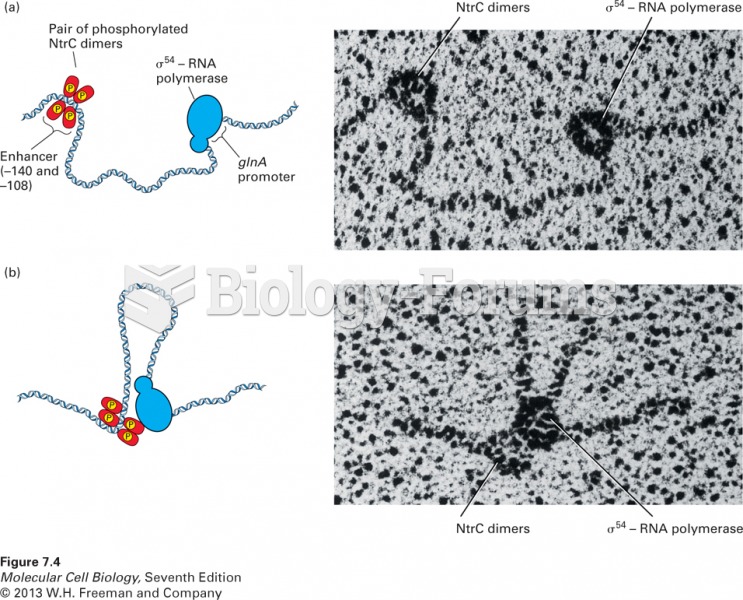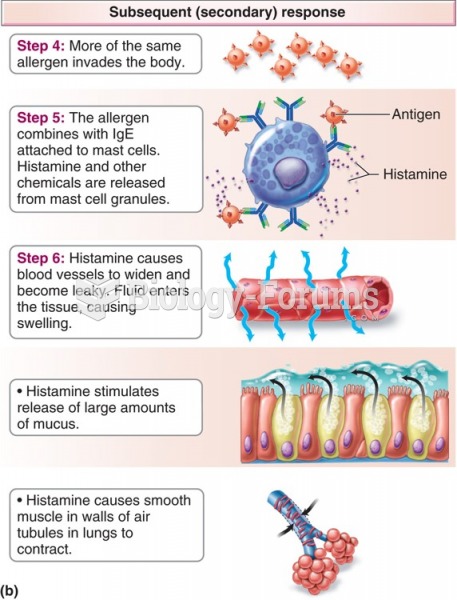|
|
|
Interferon was scarce and expensive until 1980, when the interferon gene was inserted into bacteria using recombinant DNA technology, allowing for mass cultivation and purification from bacterial cultures.
Today, nearly 8 out of 10 pregnant women living with HIV (about 1.1 million), receive antiretrovirals.
Bacteria have flourished on the earth for over three billion years. They were the first life forms on the planet.
GI conditions that will keep you out of the U.S. armed services include ulcers, varices, fistulas, esophagitis, gastritis, congenital abnormalities, inflammatory bowel disease, enteritis, colitis, proctitis, duodenal diverticula, malabsorption syndromes, hepatitis, cirrhosis, cysts, abscesses, pancreatitis, polyps, certain hemorrhoids, splenomegaly, hernias, recent abdominal surgery, GI bypass or stomach stapling, and artificial GI openings.
The effects of organophosphate poisoning are referred to by using the abbreviations “SLUD” or “SLUDGE,” It stands for: salivation, lacrimation, urination, defecation, GI upset, and emesis.
 Plasma protein binding and drug availability: (a) drug exists in a free state or bound to plasma pro
Plasma protein binding and drug availability: (a) drug exists in a free state or bound to plasma pro
 The Sleep/Waking Flip-Flop According to Saper et al. (2001), the major sleep-promoting region (the v
The Sleep/Waking Flip-Flop According to Saper et al. (2001), the major sleep-promoting region (the v





